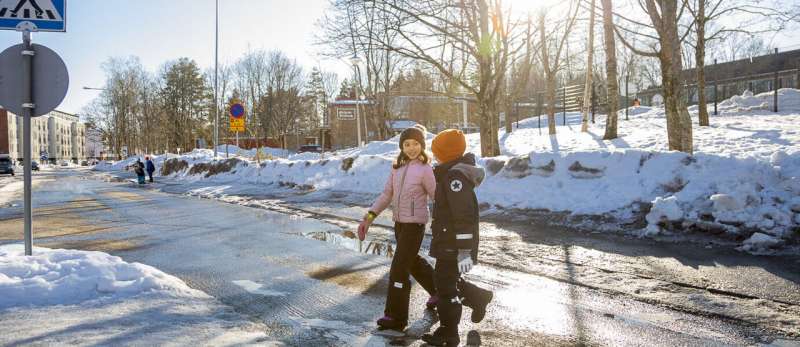Smart urban planning makes daily life smooth in Finland

For several years in a row, Finland has topped the prestigious World Happiness Report, bringing a lot of attention to the modest Nordic country of 5.5 million people. What's the recipe for a content and healthy city in a country that's roughly the size of California?
"A functional and happy city like Helsinki should facilitate a smooth daily life for its people. There should be access to nature, recreational areas and a child-friendly environment," says Marketta Kyttä, Professor of Land Use Planning at Aalto University.
"We also want the public to participate in planning. I believe having a say in your own environment plays a huge role in happiness," she adds.
These days city dwellers in Finland's capital city can make their voice heard in ways that move beyond conventional practices, like voting online for special projects or budgets. Through groundbreaking research that asks the public opinions about their city, researchers have started to understand what kinds of environments are perceived to be positive, and what elements cause negative reactions. These findings could be the secret to developing cities that promote health and happiness among their inhabitants.
To your health, happiness and environment
"A person's environment plays a big role in their happiness which makes the topic of health promotion in cities very important. It's closely related to social sustainability and whether you feel connected to your community," explains Kyttä.
Data suggests that two important factors for promoting mental and physical health in cities—at all ages.
"There are two main takeaways from the current information available. The first is that nature promotes mental wellbeing—it has this amazing ability to reduce stress within minutes. The other data focuses on physical health. Here we're talking about environments that promote an active lifestyle," Kyttä emphasizes.
An active lifestyle can take many forms, but in a city like Helsinki it means 'people can get to their daily destinations easily—that means having mobility without cars and access to recreational areas," Kyttä describes.
Kids and their communities
Throughout Finland children grow up trusting in their environment, allowing for parents to breathe a sigh of relief. With smart urban planning kids are given mobility and freedom to easily get to their schools and social structures, helping them navigate their environment independently.
For example, a 7-year-old walking to school alone is considered part of normal life. These elements of trust woven into the day-to-day help foster the feeling of shared responsibility among parents, and ultimately, their communities.
"There's a silent understanding that if something happens to my kid at the park, another adult will step in and make things right. This notion of trust and shared responsibility is unique in Finland and is an important factor in health and happiness," Kyttä says.
She explains that Finland is a good example of how you can combine data on environmental health promotion with the public's opinion on how to make a city better, to help steer urban planning.
"We hope to influence decision-makers by encouraging people to be an active part of the city they want to live in."
Provided by Aalto University





















